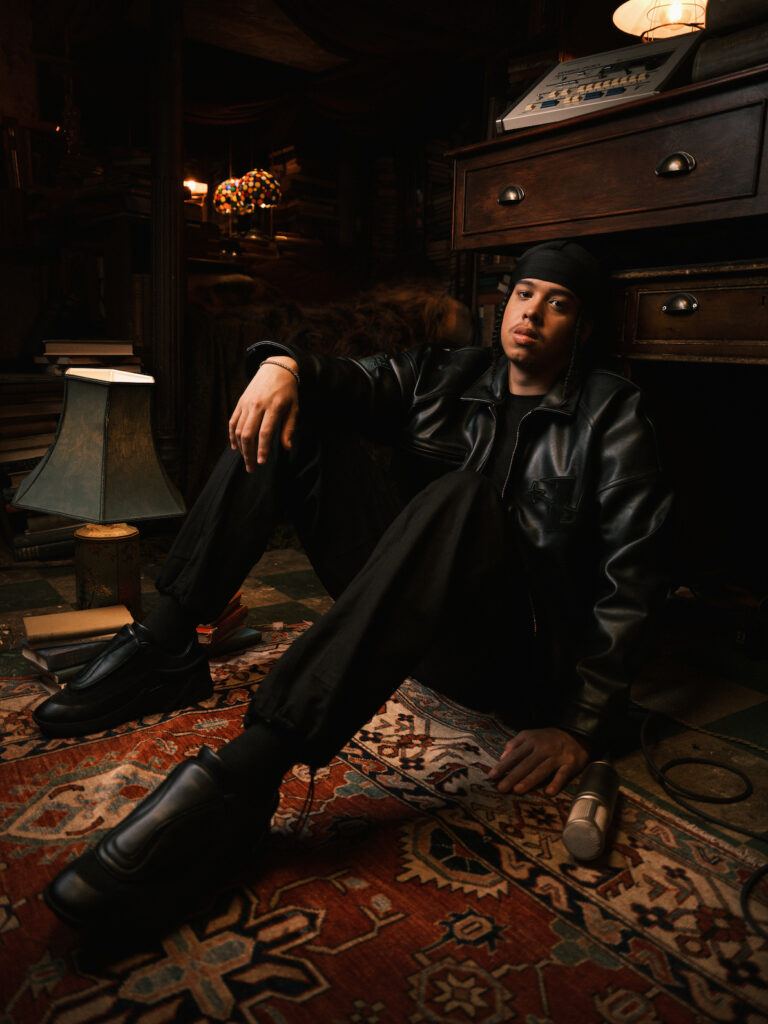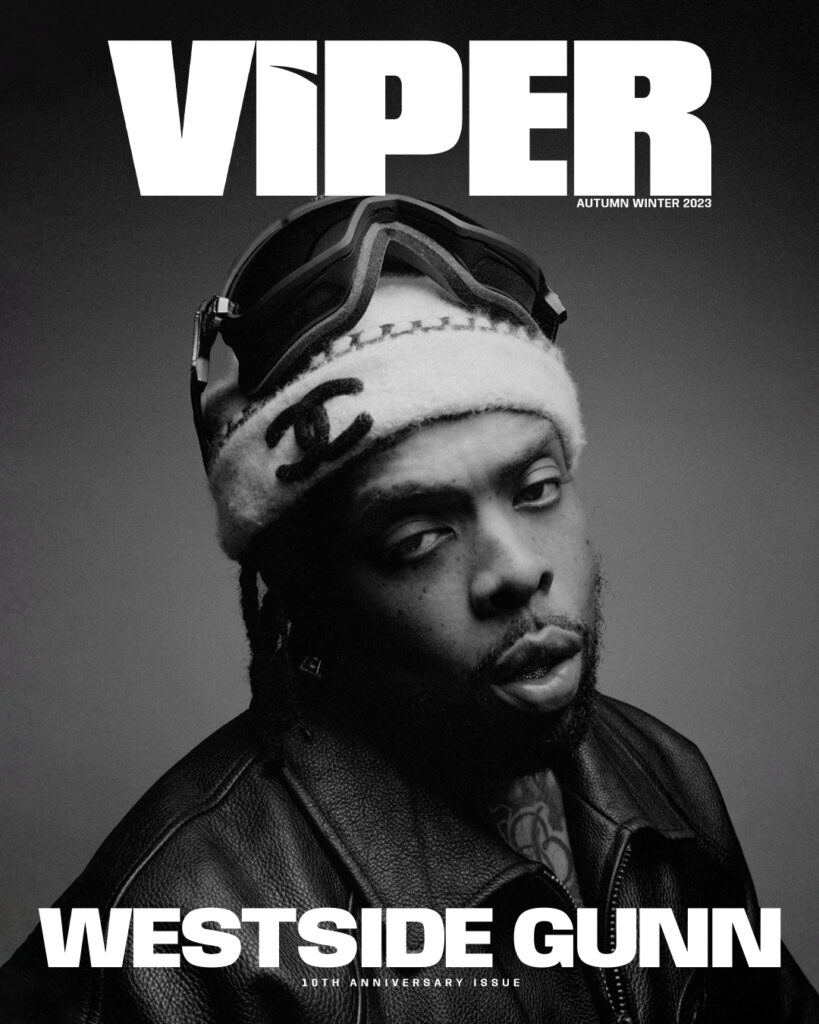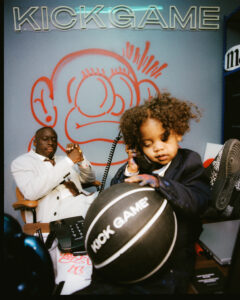For many, their first glimpse of Strandz was the studio video on social media, which saw him accompanied by his girlfriend teasing the track. Or maybe it was the official video, which saw the pair riding in the back of a pickup truck under stormy skies. Some people, me included, caught onto the London rapper a little earlier, in the brief singles run leading up to the now viral ‘Us Against The World’, which included the standout, ‘Criminal’.
Displaying elements of the influence of noughties Rap, Strandz’s music appeals to old heads and new ones, bridging two polarised generations of Hip Hop fans in a way that few artists today can. VIPER caught up with Strandz on Valentine’s Day, just days before the release of the ‘Us Against The World’ remix featuring Digga D. He breaks down the reason behind the positive message he’s bringing to Rap by being “fully lidge” as well as the importance of love and his upcoming project.
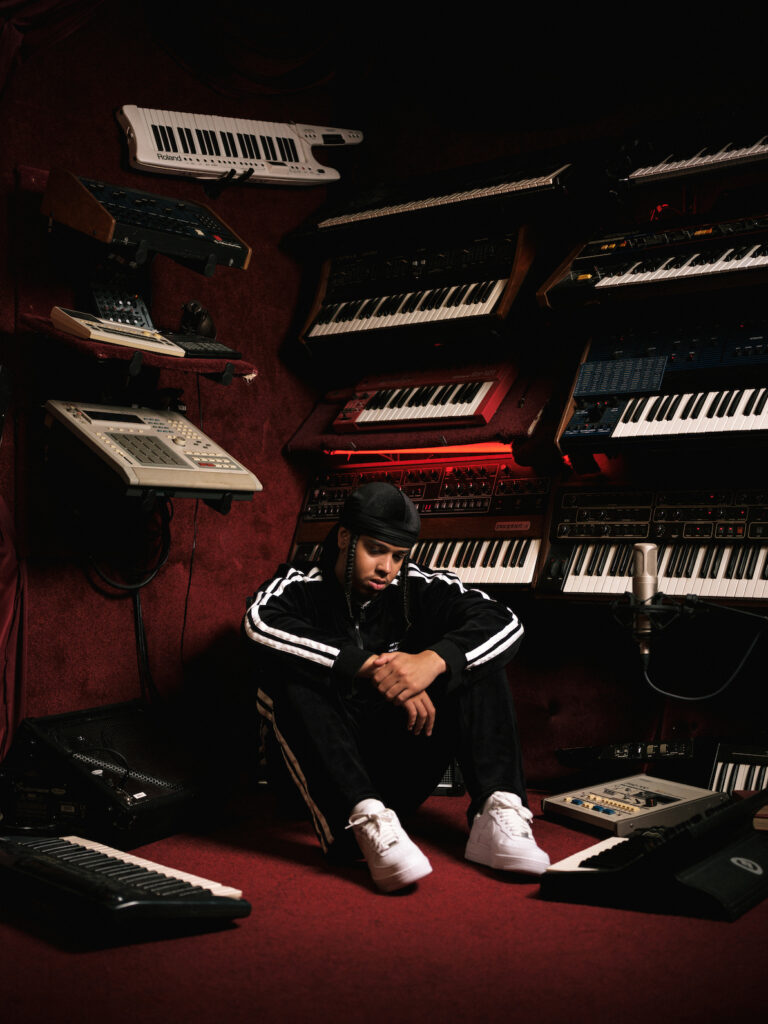
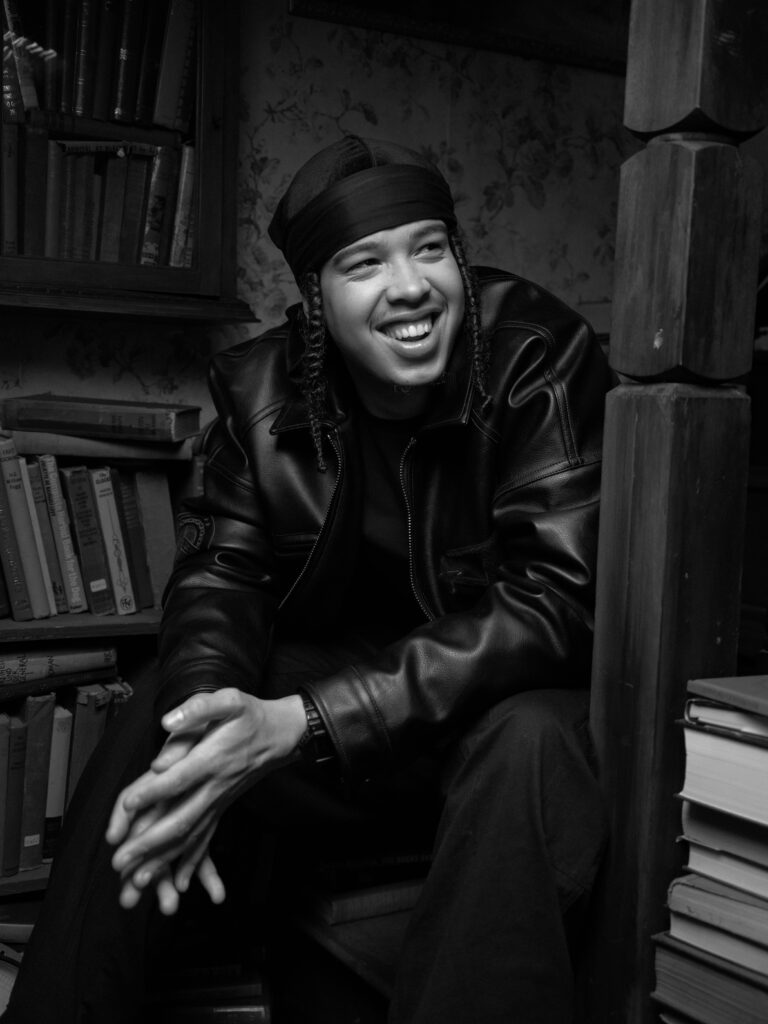
‘Us Against The World’ went pretty viral, did you expect it?
It was in the plans. At the start of last year, I started applying myself a bit more, in terms of how I was trying to do music. I’ve always been a mad grinder and I’m always putting in the hours. But there wasn’t a lot of structure to it until the beginning of last year. I read one book called Think and Grow Rich, it just helped me with structuring everything properly and actually making a plan because there’s no book about how to make it in music you have to figure out your own path. So I think that helped me. I made my goals for last year and then I literally reached all the goals. Slyly, I knew it would happen but at the same time you never know when it’s gonna happen. I just told myself it has to happen this year and literally, at the end of the year it came through.
Today there’s no formula to success but do you find it’s still important to be strategic instead of just going with the flow? It’s a mix of both to be honest, because in terms of the campaigns and that stuff, me and my manager are properly locked in together. I like to be across everything to do with my music, from the marketing to the videos. I engineer and produce all my shit so I’m across everything, I think there’s always structure to it naturally because I’m overseeing everything. But I think at the same time, music is one of those things; there’s not really science behind it – when you make something that connects, it connects. You can feel that so I think when it comes to deciding what to drop, or even when I’m creating music, I let that be purely organic. It’s what I feel is right, if I’m really connecting with something then the likelihood is that other people are gonna connect with it; that’s how I see it.
Do you find that your audience is a bit split between two different generations?
It’s actually interesting – I forgot who told me this – but it’s weird because it captures both generations in a weird way. The older generation, they listen and they feel nostalgic. They’re like, “this brings me back” and it’s refreshing to them. But to the younger generation, it’s just new so for them it’s also something they’re excited about because they’re like, “rah this is mad different, like new.” They’re not even deeping that it’s nostalgic, because they’re too young for that. I think someone told me that their niece was trying to put him onto me and be like, “listen to this new sound” and he’s like, “Whoa, this is my shit.” I think it’s a good connect between those generations.
Music kind of goes in cycles like that anyway.
Yeah it’s just a cycle, where the music develops until it actually starts sounding kind of whack. When you came up on really good music, there was less of a demand for good music because there was so much there already. So no one was really trying to pursue that, then there was a generation of everyone just making all Rap music. But it all became very industry and now there’s a drought of that super creativity, especially within the UK to be honest. I think worldwide it’s a bit different but in the UK there’s a drought now. And now, a lot of people are cutting through things that wouldn’t cut through before because they’re doing something fresh.
You don’t really have anything distinctive happening in the US Rap scene either, so do you feel that it’s across the board? Yeah for sure, it’s different within every culture around the world – for example with Afrobeats. I think Afrobeats is on the rise right now, that’s something great with Amapiano happening. I think that it’s more Rap that’s going through that cycle right now, everyone’s a bit bored. Everything’s a bit too pop culture and too gimmicky so I think people are almost yearning, even people that never really experienced original, authentic music, there’s something in them like, “we need something more real.”
Was there ever a point where you felt that it was going to be harder to break through?
The thing is for me, once I started making that kind of music two, three years ago, I was already at a point – because I’ve been rapping for maybe six, seven years. I’ve always been someone that if I’m doing something, I want to do that all the way. I was 14 and I started working in a studio as an engineer so I could be in the studio more. Then I went to the BRIT School and did some of the production stuff. I’ve always had that mindset of, “I’m just gonna go hard and just give it everything.” From the start when I was putting out music, I’m thinking I have to fit in to be recognised and then at one point, I was just like, “You know what, I don’t even enjoy making this kind of music anymore.” This is when I started going to BRIT School and I really started studying different genres and understanding different types of music, outside of Hip Hop. It made me realise, let me just do whatever I want to do for the sake of making the music and then I’ll figure out how to do something with that once it’s developed. Because I also understood you can’t just jump on something and it’s good straight away. When I first started rapping it was just something I stuck to, so much that eventually I picked it up and I was like, “yeah, I can do something.” So I took maybe two years to really develop a sound and really hone into it and understand the production. The producer that I developed it with is from an Electronic background so it was me telling them, “you need to try this.” It was a lot of experimenting and not doing things how it generically would be done. I think that’s why when it came time to start putting it out, I was just like, “yeah, I’ve always been making this anyway, let me just put it out.” Then when people connected with it, that’s when I was like, “okay cool, this is something I can really pursue.”
How does your engineering and production knowledge influence your writing?
I’m really efficient at recording because I don’t like working in big studios and booths. I just like having my mic to record myself, because then I can get through a song and structure a song. A lot of
times I like to freestyle – I’m not writing, I just spit it bit by bit and see what comes out. I think that workflow helps me get through songs more efficiently, it’s more fun to write that way rather than sitting down and then having to go to the booth. With the production side, that really helps me bring a song together. I’m always going to be connected because when I’m making a beat I have in mind what I want to say. So I’m putting those emotions in the beat already, everything glues together that way.
This is an extract from the SS23 issue of Viper Magazine. Buy physical and digital copies here.
Photography: ETHAN LODGE
Words: LILY MERCER
Production + Creative Direction: JAI GARCHA @ ALPHA BRAVO STUDIOS
Styling: EMELIA GAYNER
Grooming: AMIE HARFIELD
